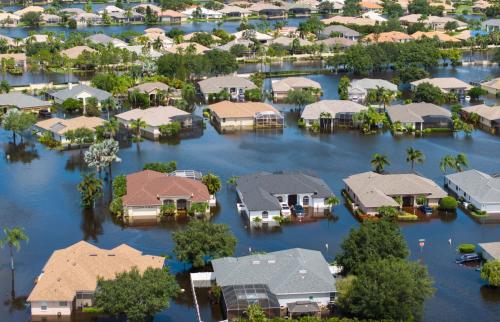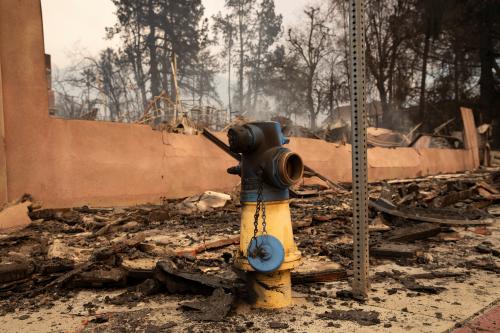Editor’s Note: A new Illinois statewide policy on shale development and the possible use of hydraulic fracturing (fracking) procedures was just passed with overwhelming majorities in both legislative chambers. Barry Rabe explains the significance of this legislation and how this aspect of the Illinois experience is worthy of national attention.
Paul Simon would likely be very proud. Throughout his long and distinguished service to Illinois in both state government and in Congress, he understood the complexities of combining energy development with environmental protection. This reflected his home base in downstate Illinois, with its significant fossil fuel deposits and extensive environmental treasures.
Simon died a decade ago and so never lived to address the issue of shale development and the possible use of hydraulic fracturing procedures in the very sections of Southern Illinois that he dearly loved. But he clearly would have applauded the type of multi-year effort that brought very diverse stakeholders together to develop a comprehensive new statewide policy on this issue. Indeed, that legislation was just passed with overwhelming majorities in both legislative chambers and was signed into law by Governor Patrick Quinn.
This law neither bans fracking nor tips the scales in favor of development with only modest restrictions. Instead, it reflects some extended and careful elements not found in most other states that have moved more rapidly into shale development. In particular, the new Illinois legislative package includes far more extensive chemical disclosure provisions than are common elsewhere, a severance tax mechanism designed to return some revenues to affected local communities, and expansive citizen participation mechanisms.
Perhaps most significantly, Illinois now will also require water testing before and after any drilling occurs, allowing for careful comparison that is simply not possible in most other states and drilling cases. This testing is coupled with a presumption of liability in the event that water contamination is detected after drilling. The widespread lack of such testing has led to huge uncertainty and controversy around the nation.
This approach secured buy-in from a remarkably diverse, albeit not unanimous, set of stakeholders across Illinois. It reflected significant legislative leadership and endured a number of challenges, including proposed amendments that might have crushed any compromise. And it is designed to provide an overarching governance mechanism for future shale drilling that can simultaneously allow development while going far beyond most states in providing important environmental protections.
Formal restrictions on the application of existing federal statutes for drinking water and waste management to shale drilling have essentially punted this issue to individual states and localities. Yet more than half of the American states have shale deposits, ranging from established state energy development powerhouses like Texas and Pennsylvania to other states that have virtually no prior experience in this area. Many have struggled to develop a credible policy regime and we are indeed beginning to see a patchwork quilt of state-by-state differences. Public opinion surveys find that the citizenry tends to support development but has misgivings about risks, and so supports a series of key environmental protection provisions.
And so Illinois thus takes a lead role in beginning to define what might be possible, particularly through assembling a coalition that takes a careful look at all facets of the issue and attempts to work across partisan lines to create a governance system that might be solid for the long haul.
Ironies abound in this case. It has been rare in recent decades to point to Illinois governance as a model for the nation. The state retains the lowest credit rating in the nation and has just failed yet again to fix a badly-broken system for state pensions. And it continues to hold one of the highest incarceration rates for former elected state officials, including a series of relatively recent governors. So it would hardly seem a likely case to produce a possible model for state best-practice in this emerging area.
But there has always been another side to Illinois, reflected in the life and public service career of Paul Simon. No other state has yet produced such an extensive review and balanced approach to shale development, making this aspect of the Illinois experience worthy of national attention.
The Brookings Institution is committed to quality, independence, and impact.
We are supported by a diverse array of funders. In line with our values and policies, each Brookings publication represents the sole views of its author(s).



Commentary
A Grand Bargain on Fracking? Lessons from Springfield, Illinois
June 10, 2013